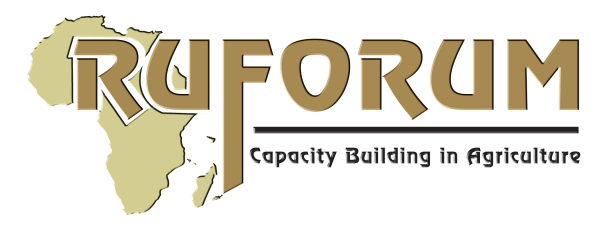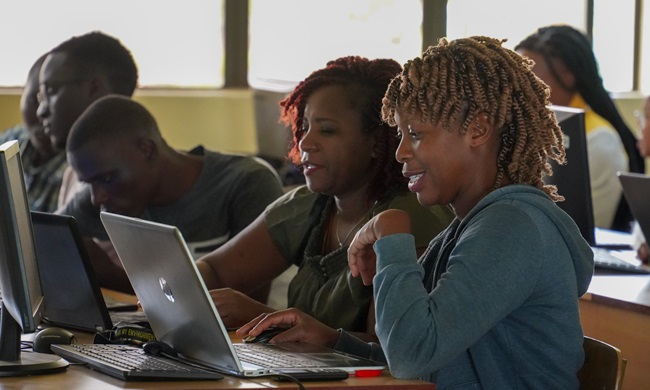Strategic Integration of Knowledge & Technology
The Strategic Integration of Knowledge & Technology thrusts is geared towards strengthening digitally enabled agriculture education systems across member institutions. With emphasis on: broadened reach and accessibility of Science, Technology and Innovation (STI) knowledge products to diverse agri-food stakeholders, and, stronger institutional capacity for inclusive, data-driven, and digitally mediated teaching, research, and extension.
The RUFORUM Knowledge Hub (K-Hub) is the Secretariat’s digital transformation and knowledge innovation engine. It plays a catalytic role in curating, packaging and disseminating knowledge across Higher Agricultural Education (HAE) and STI ecosystems. By harnessing emerging technologies and strategic partnerships, the K-Hub integrates digital education systems, amplifies the use of STI products, and facilitates the synthesis of evidence from the network to influence evidence-based decision making in the Agri-food systems sector.
Digital transformation in higher education
We strengthen the digital foundations of member universities and technical institutions by:
- Facilitating the development of integrated digital platforms (e.g., eLearning systems, knowledge repositories, information management systems).
- Supporting institutions to embed digital pedagogy, online course delivery, and data-driven decision-making into their academic and administrative operations.
- Leading the RUFORUM Digital Academy initiative to skill, reskill, and upskill diverse agri-food system actors.
Knowledge mobilization and exchange
We ensure research and innovations reach end users through:
- Curating, translating, and disseminating knowledge products tailored for policymakers, farmers, entrepreneurs, and educators.
- Promoting knowledge sharing through webinars, virtual showcases, and thematic exhibitions across the network.
- Facilitating knowledge exchange, communities of practice, and digital storytelling.
Inclusive access and innovation
We are committed to equitable access to digital tools and resources by:
- Developing frameworks for digital inclusion (e.g., gender-responsive interfaces, multilingual content, offline-enabled platforms).
- Leveraging emerging technologies to enhance learning and innovation in agriculture and related disciplines.


